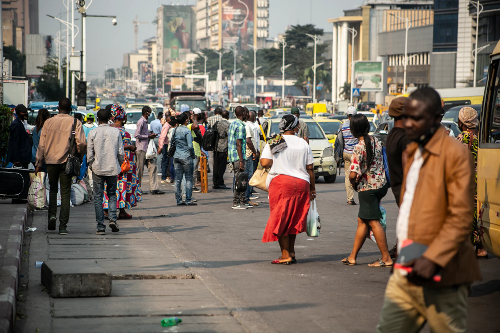Africa to remain second-fastest growing region

TLDR
- Africa's economic outlook expects growth to reach 3.7% in 2024 and 4.3% in 2025, showing strong resilience and positive growth potential.
- Despite facing structural challenges and severe shocks, African economies are rebounding with improvements in global economic conditions and effective policy measures.
- Africa poised to be the second-fastest growing region globally, with 40 countries on the continent projected to achieve higher growth rates compared to 2023 levels.
Africa's economic outlook is more positive, with economic growth as measured by gross domestic product expected to increase to 3.7% in 2024 and 4.3% in 2025, per the African Development Bank's latest African Economic Outlook.
This highlights the strong resilience of African economies, the pan-African lender says, as governments continue to contend with significant structural challenges and multiple severe shocks, including heightened food and energy prices driven by geopolitical tensions, climate issues affecting agriculture and energy production, and persistent political instability.
This growth rebound will be underpinned by expected improvements in global economic conditions and effective policy measures. With these outturns, Africa will remain the second-fastest growing region globally only after Asia compared to IMF forecasts, with 40 countries on the continent set to achieve post-higher growth rates relative to 2023 levels.
Key Takeaways
Despite these positive trends, Africa still faces challenges in achieving sustainable economic and social transformation. Historical growth rates have been insufficient to offset population increases, leading to minimal gains in per capita GDP. Structural transformation has been limited, with economies heavily reliant on traditional, low-productivity sectors like agriculture or low-skilled services for growth and employment. To achieve substantial structural transformation, Africa needs to focus on strategic investments in key Sustainable Development Goal areas such as education, energy, productivity-enhancing technology and innovation, and productive transport infrastructure. The financing gap for these investments is vast, estimated at $402 billion annually until 2030, and will require scaling up domestic resource mobilization and fostering private-sector investment.

Next Frontier
Stay up to date on major news and events in African markets. Delivered weekly.
Pulse54
UDeep-dives into what’s old and new in Africa’s investment landscape. Delivered twice monthly.
Events
Sign up to stay informed about our regular webinars, product launches, and exhibitions.




